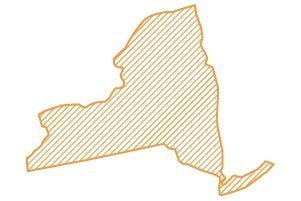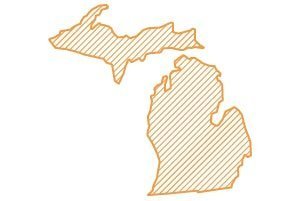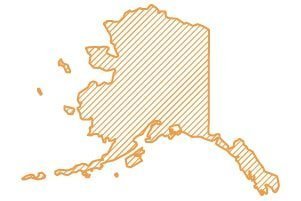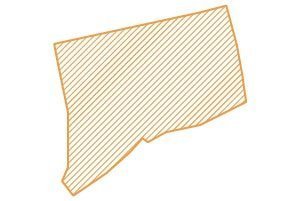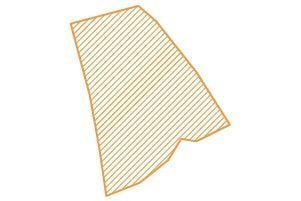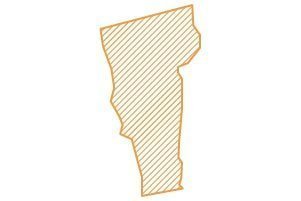Living and studying in Washington, D.C., offers unique opportunities offered in no other place. Being the capital of the U.S. and home to the White House, the Pentagon, the Lincoln Memorial, the Smithsonian Museum of Natural History, the Arlington National Cemetery, the Library of Congress, and much more, it is a place of dense history, but also, a place with much progress and a constant need for innovation. Additionally, it offers beautiful parks and gardens for walks and for families. They also have the National Children’s Museum, which combines state-of-the-art science programs with art activities for all ages.
Studying in Washington, D.C., especially in library science, students will have a plethora of internships, fellowships, and research opportunities while in the capitol. Simply being in an academic environment surrounded by captivating American monuments will add a level of inspiration to your studies. Washington, D.C., offers one master’s program in library and information science and a couple of undergraduate options as well. Additionally, the master’s program is accredited by the American Library Association (ALA).
This article will cover the library science programs offered in Washington, D.C., and why it is important that the school be ALA-accredited. It will also cover how to become a librarian in Washington, D.C., and the education necessary for qualifications. Additionally, it will suggest some good career opportunities outside of librarianship for information professionals. Lastly, it covers the salary opportunities in Washington, D.C., and what to expect as far as job opportunities.
Bachelor Programs in Information Science in Washington, D.C.
The Catholic University of America offers a minor in information technology and a 4+1 program that combines a bachelor’s degree with a master’s in library and information science. The university’s master’s program in library and information science is accredited by the American Library Association (ALA) and is respected by institutions nationwide. However, if you are unsure of what you might do with an information science degree or a master’s in library science, a minor in information may be an excellent place to start.
Minor in Information Technology at Catholic University of America
Coursework in this minor prepares students to manage and analyze information systems, design and develop information systems, integrate human interaction and behavior into information technology, and code computer applications. The minor consists of six courses. The course Introduction to Information Systems is the only required course and the other courses are elective classes in information technology. Some electives to choose from include Digital Content Creation and Management, User Interface Design and Evaluation, Introduction to Data Science, Human Information Behavior, Programming for Web Applications, Introduction to Database Design, Management of Information, Data Visualization, and Data on the Web.
How to apply
For admittance into the undergraduate program, the university looks at each student’s classwork achievement and what classes were taken. Most accepted students took advanced classes, honors classes, and college prep classes. Most specialized programs will also require advanced classes taken within that field. To apply, applicants must apply online and pay the application fee. Students also need to send in official transcripts, an admissions essay, at least one letter of recommendation from a teacher, and a Secondary School Report with a counselor letter.
4+ 1 Bachelor to Master of Science in Library and Information Science at Catholic University of America
This program combines an undergraduate degree with a master’s degree in information science from the Catholic University of America. Students take four courses in library science during their undergraduate work and will take another eight courses the year following their undergraduate degree to complete their master’s. The program is available to all juniors and seniors, regardless of their major. Various areas of study are also available for this program including Law Librarianship, Cultural Heritage, Data Science, Community Services Librarianship, Digital Libraries, Information Architecture, Organization of Information, and School Library Media.
How to apply
You will need to apply for the bachelor’s program first by following the application process. After being accepted into the bachelor’s program, be sure to keep your GPA at or above 3.5. During your sophomore year, apply for the 4+1 program. In your senior year, apply for the graduate program. Talk with the graduate admissions department for more specifics regarding this program.
ALA Accredited Library and Information Science (MLIS) Programs in Washington D.C.
There is only one master’s program in Washington D.C. that is ALA accredited. The program is offered online, on campus, and as a dual degree. Additionally, undergraduate students can take some coursework towards the MSLIS degree during their undergraduate work and have only one more year’s worth of graduate work to complete before graduating with both a bachelor’s and a master’s degree in library science. Because these programs are accredited by ALA, employers know that a person with one of these degrees is coming from a reputable program. In fact, most library and information specialist employers require an MLS, MLIS, or MSLIS from an ALA-accredited institution.
Master of Science in Library and Information Science at Catholic University of America
Over 40% of students get a job in the field before they graduate from this program. Students are hired by school libraries, government agencies, information-centered businesses, non-profit organizations, public libraries, and academic libraries. This program is 36 credit hours in length and can be completed online or on campus. To graduate, students must maintain a 3.0 GPA and pass a comprehensive exam. Students may choose a course of study and take courses within that discipline. Courses of study include School Library Media, Organization of Information, Law Librarianship, Information Architecture, Generalist, Digital Libraries, Data Science, Cultural Heritage Information Management, and Community Services Librarianship.
Earning your master’s degree from the Catholic University of America offers unique opportunities and advantages that you could not get from other programs. Because the university is in D.C., they have a strong partnership with the Library of Congress, the Smithsonian Institution, and other major federal institutions. This partnership creates a pathway for students to gain internship and practicum opportunities as well as lifelong professional contacts.
How to apply
The minimum requirements for graduate applicants are to apply online and to send in official transcripts. No application fee is required, and no GRE test scores are requested. It is recommended that applicants also send in an updated resume, one letter of recommendation, and a professional goal statement.
How to Become a Librarian in Washington D.C.
There is no set standard for public librarians or academic librarians in D.C. However, most institutions require librarians to have an MLIS, MLS, or MSLIS degree from an ALA-accredited degree program. However, library technicians and library assistants do not have to have a master’s degree. Law library positions may require additional education requirements, possibly up to a J.D. and an MLIS with a concentration in Law Librarianship.
School library media position requirements are set by the District of Columbia. They require librarians to have a master’s in library media from an ALA-accredited program and a library media certification for the District of Columbia. Certification can be earned through an approved program. Two years of teaching experience or one year of library media experience is also required.
What Else Can You Do with a Library Science Degree in Washington, D.C.?
The U.S. Department of Defense (DOD) is the largest employer in the District of Columbia and in the nation. They are the largest and oldest government agencies in the U.S. They provide military forces to protect and prevent war. They are in charge of the Army, Marine Corps, Navy, Air Force, Space Force, Coast Guard, National Guard, and Combatant Commands. Additionally, they employ over 700,000 civilians. Many employees receive training and education through the DOD and are offered plenty of promotion opportunities. Those who are information specialists will find plenty of positions in data management, data retrieval, information organization, information technology, information engineering, cyber security, and much more.
The Department of Homeland Security’s headquarters is also in the District of Columbia. Homeland Security protects the nation’s borders, seaports, airports, and waterways. They do so through cybersecurity, and other security technologies, analyzing intelligence reports, and responding to natural disasters, national security threats, and terrorist threats. Employers can work for the Cybersecurity and Infrastructure Security Agency, Citizenship and Immigration Services, Customs and Border Protection, Federal Emergency Management Agency, Immigration and Customs Enforcement, Transportation Security Administration, U.S. Coast Guard, U.S. Secret Service, and the Federal Protective Service.
Salary Opportunities in Washington D.C. for Librarians
According to the U.S. Bureau of Labor Statistics, there are 900 library positions in the District of Columbia. They are the highest-paying employers for librarians in the U.S. Their salary mean wage is $89,610 annually and the hourly mean wage is $43.08. The largest employer of librarians in D.C. is the Library of Congress. They hire librarians in nearly all specialties and they offer all types of employment, including internships, fellowships, part-time, and full-time.
Additional Links
For more information about library and information science go to https://www.ala.org/
For more information about librarianship in D.C. visit https://dcla.org/.

